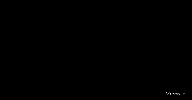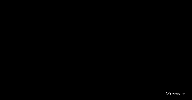Best coaching for ugc net electronic science
Syllabus covered
Unit – I :
Electronic Transport in semiconductor, PN Junction, Diode equation and diode equivalent circuit. Breakdown in diodes, Zener diodes, Tunnel diode, Semiconductor diodes, characteristics and equivalent circuits of BJT, JFET, MOSFET, IC fabrication-crystal growth, epitaxy, oxidation, lithography, doping, etching, isolation methods, metalization, bonding, Thin film active and passive devices.
Unit-II :
Superposition, Thevenin, Norton and Maximum Power Transfer Theorems, Network elements, Network graphs, Nodal and Mesh analysis, Zero and Poles, Bode Plots, Laplace, Fourier and Z – transforms. Time and frequency domain responses. Image impedance and passive filters. Two – port Network Parameters. Transfer functions, Signal representation. State variable method of circuit analysis, AC circuit analysis, Transient analysis.
Unit – III :
Rectifiers, Voltage regulated ICs and regulated power supply, Biasing of Bipolar junction transistors and JFET. Single stage amplifiers, Multistage amplifiers, Feedback in amplifiers, oscillators, function generators, multivibrators, Operational Amplifiers ( OP AMP ) – characteristics and Applications, Computational Applications, Integrator, Differentiator, Wave shaping circuits, F to V and V to F converters. Active filters, Schmitt trigger, Phase locked loop.
Unit – IV :
Logic families, flip – flops, Gates, Boolean algebra and minimization techniques, Multivibrators and clock circuits, Counters-Ring, Ripple. Synchronous, Asynchronous, Up and down shift registers, multiplexers and demultiplexers, Arithmetic circuits, Memories, A/D and D/A converters.
Unit – V :
Architecture of 8085 and 8086 Microprocessors, Addressing modes, 8085 instruction set, 8085 interrupts, Programming, Memory and I/O interfacing, Interfacing 8155, 8255, 8279, 8253, 8257, 8259, 8251 with 8085 Microprocessors, Serial communication protocols, Introduction of Microcontrollers ( 8 bi t) – 8031 / 8051 and 8048.
Unit – VI :
Introduction of High – level Programming Language, Introduction of data in C. Operators and its precedence, Various data types in C, Storage classes in C, Decision-making and forming loop in program, Handling character, Arrays in C, Structure and union, User defined function, Pointers in C, Advanced pointer. Pointer to structures, pointer to functions, Dynamic data structure, file handling in C, Command line argument, Graphics-video modes, video adapters, Drawing various objects on screen, Interfacing to external hardware via serial/parallel port using C, Applying C to electronic circuit problems. Introduction to object-oriented Programming and C++.
Introduction of FORTRAN language, programming discipline, statements to write a program, intrinsic functions, integer-type data, type statement, IF statement, Data validation, Format-directed input and output. Subscripted variables and DO loops. Array, Fortran Subprogram.
Unit – VII :
Maxwell’s equations, Time varying fields, Wave equation and its solution, Rectangular waveguide, Propagation of wave in ionosphere, Poynting vector, Antenna parameters, Half-wave antenna, Transmission lines, Characteristic of Impedance matching, Smith chart, Microwave components-T, Magic – T, Tuner. Circulator isolator, Direction couplers, Sources-Reflex Klystron, Principle of operation of Magnetron, Solid State Microwave devices; Basic Theory of Gunn, GaAs FET, Crystal Defector and PIN diode for detection of microwaves.
Unit – VIII :
Basic principles of amplitude, frequency and phase modulation, Demodulation, Intermediate frequency and principle of superheterodyne receiver, Spectral analysis and signal transmission through linear systems, Random signals and noise, Noise temperature and noise figure. Basic concepts of information theory, Digital modulation and Demodulation; PM, PCM, ASK, FSK, PSK, Time-division Multiplexing, Frequency-Division Multiplexing, Data Communications-Circuits, Codes and Modems. Basic concepts of signal processing and digital filters.
Unit – IX ( a ) :
Characteristics of solid state power devices – SCR, Triac, UJT, Triggering circuits, converters, choppers, inverters, converters. AC-regulators, speed control of a.c. and d.c. motors.
Stepper and synchronous motors; Three phase controlled rectifier; Switch mode power supply; Uninterrupted power supply.
Unit – IX ( b ) :
Optical sources – LED, Spontaneous emission, Stimulated emission, Semiconductor Diode LASER, Photodeteetors – p – n photodiode. PIN photodiode, Phototransistors, Optocouplers, Solar cells, Display devices, Optical Fibres-Light propagation in fibre, Types of fibre, Characteristic parameters, Modes, Fibre splicing, Fibre optic communication system-coupling to and from the fibre, Modulation, Multiplexing and coding, Repeaters, Bandwidth and Rise time budgets.
Unit – X ( a ) :
Transduces – Resistance, Inductance Capacitance, Peizoelectric, Thermoelectric, Hall effect, Photoelectric, Techogenerators, Measurement of displacement, velocity, acceleration, force, torque, strain, speed and sound temperature, pressure, flow, humidity, thickness, pH, position.
Measuring Equipment-Measurement of R, L and C, Bridge and Potentiometers, voltage, current, power, energy, frequency / time, phase, DVMs, DMMs, CRO, Digital storage oscilloscope, Logic probes, Logic State Analyser, Spectrum Analyzer, Recorder, Noise and Interference in instrumentation, Instrumentation amplifiers, Radio Telemetry.
Analytical Instruments – Biomedical instruments – ECG, blood pressure measurements, spectrophotometers, Electron Microscope, X-ray diffractometer.
Unit – X ( b ) :
Open – loop and close-loop control system. Error amplifier, on – off controller, Proportional ( P ), Proportional-Integral ( PI ), Proportional – Derivative ( PD ), PID controllers, Dynamic Behaviour of control systems-servomechanism characteristics parameters of control systems-Accuracy, Sensitivity, Disturbances, Transient response, Stability, Rputh-Hurwitz criterion, Bode plots, Nyquist criterion, Controlling speed. Temperature and position using analog / digital control circuits.
Topics Covered
Ugc net electronic science all topics
Who should attend
Ugc net 2018 aspirants
Pre-requisites
Nothing
What you need to bring
Note book"
Key Takeaways
Ugc net paper 1









